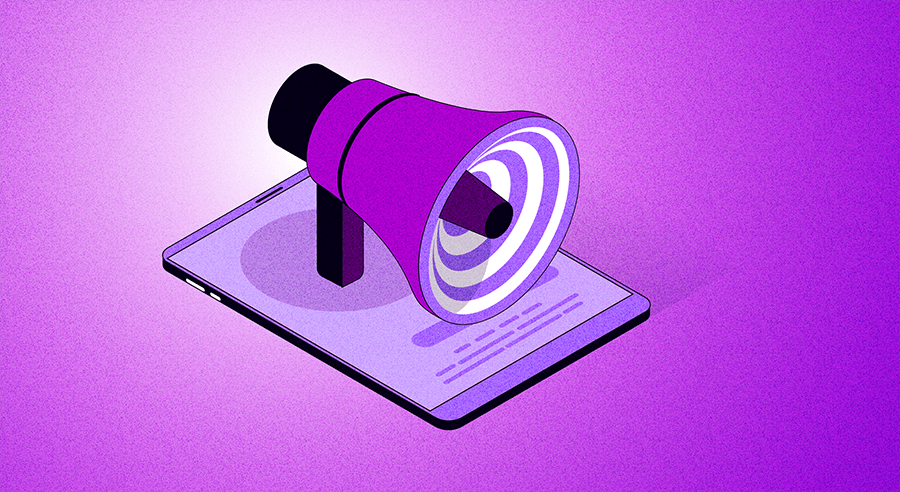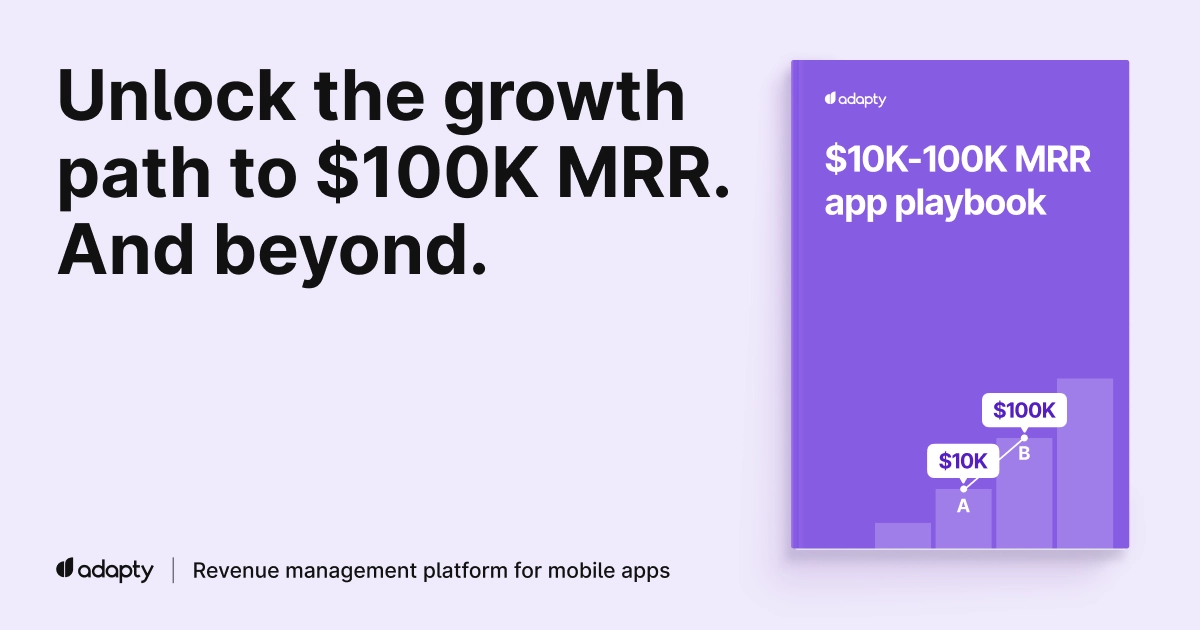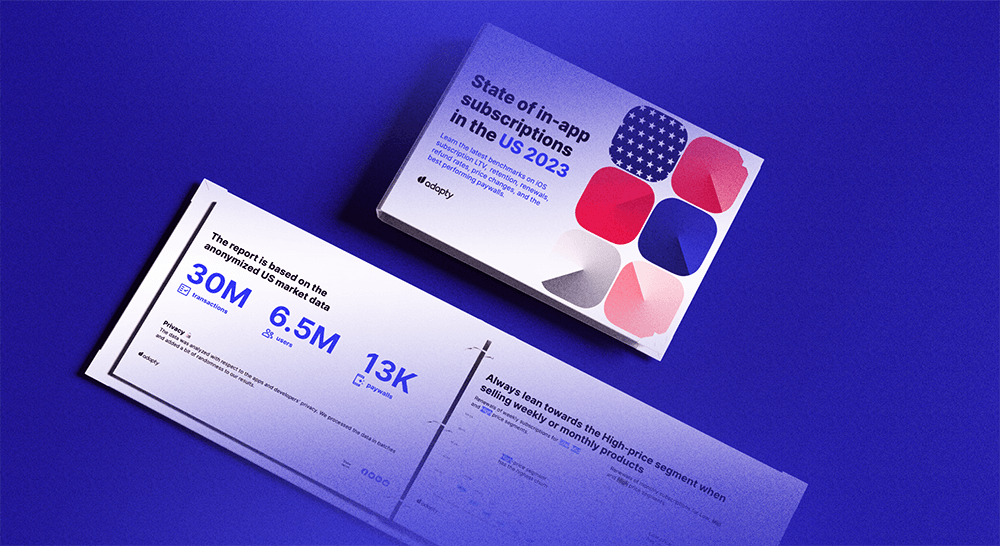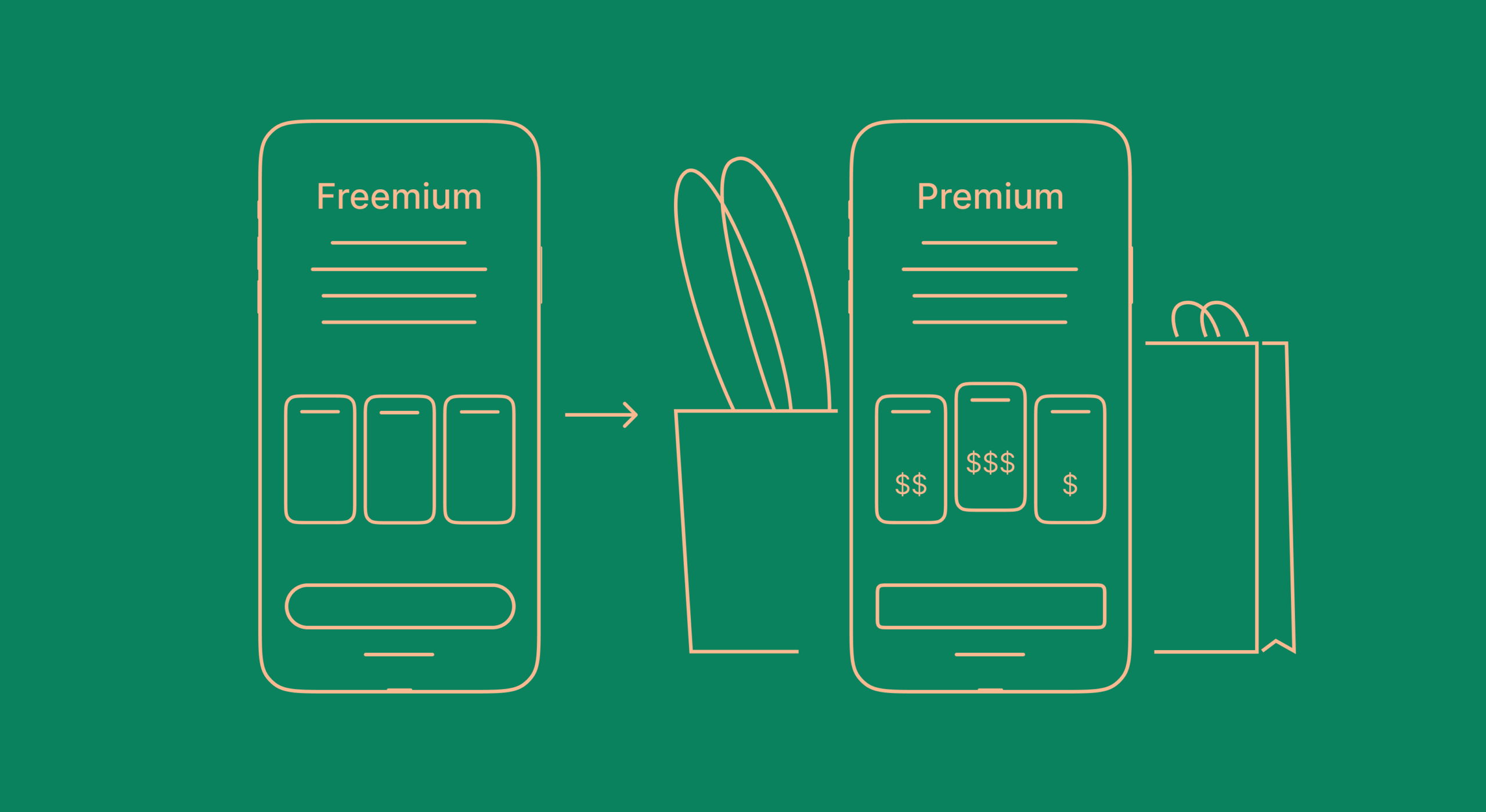Introduction
Choosing an app marketing agency can be daunting, especially if you’re new to the game since so many agencies are out there. It’s easy to get lost in all the jargon and buzzwords, even though they can be crucial to your app’s success. We’re here to help you find the right agency for your mobile app. Let us start with some basic things.
Figuring out your needs and scouting potential app marketing agencies
Are you just going live, or do you already have a product-market fit? Is your app monetized via ads, or do you need help integrating a dedicated subscription analytics tool? Are you looking for a mobile app marketing agency to help you with all aspects of your business, or are there specific areas where the agency should focus its efforts (e.g., paid user acquisition)? How much do you plan on spending on marketing? Are there any special requirements inside your company or vertical (e.g., privacy policies)?
There are many things to consider, but don’t worry! We will address each of them one by one.
Identifying target audience and marketing objective
Before you search for an agency, it’s essential to understand your target audience and marketing objective:
- Target Audience: This is the group of people you want to reach through your marketing efforts. It could be anyone from current users who have used the app before or potential users who have yet to download the app but might benefit from the value it’s providing. For example, if your app offers public transport services, reach users living in the city where your service is available and who buy tickets on their smartphones.
- Marketing Objective: The goal for each campaign should be clearly defined so that everyone on the team knows what success looks like. Examples include increasing downloads, converting more users into paid subscribers, or delivering a positive Return on Ad Spend (ROAS) at scale.
The next step is to break down your mobile marketing objective into actionable items. From there, you can begin building out a plan for how to accomplish them.
Deciding on Key Performance Indicators (KPIs)
When choosing KPIs, ensure they are measurable, specific, relevant, and time-bound:
- Measurable: “If you can’t measure it, you can’t manage it.” However, this famous Peter Drucker quote remains accurate within app marketing nowadays. Thus, instead of “improve customer satisfaction” better use “increase app store rating”.
- Specific: It’s essential to have a clear idea of when the agency has achieved its goals and what needs to be done for improvement. This could translate to an “increase trial starts by 30%” for a subscription app.
- Relevant: KPIs must always tie back to your overall business goals, like revenue or active users, to drive real impact. Famous examples of app vanity metrics would be downloads or registered users. They may look impressive but don’t inform whether these users engage with the app or become paying customers.
- Time-bound: Setting clear deadlines creates a sense of urgency and accountability to achieve specific goals within a set timeframe. Regarding user acquisition, this usually ends up being 2nd week/month ARPU or retention, depending on the vertical and business model.
Now that you know what you want to achieve, let’s explore the research methods for finding the right app marketing agency.
Online search, industry referrals, and agency shortlisting
Begin by running a Google search using industry-specific keywords like top app marketing companies or mobile app marketing services (maybe you found this article by typing one of these). This will help you find agencies with relevant expertise while also allowing you to explore their websites and better understand their capabilities. Also, you can search for longtails that include the city your company is based in or those near you to find agencies who communicate in your native language and operate during the same time zone.
As you gather potential candidates, reaching out to references on their websites and other industry professionals in your network can provide valuable insights into their know-how, performance, and work ethics. Feel free to ask if they would recommend the agency. This way, you can quickly identify bad apples.
Checking out reviews, testimonials, and success stories
If you cannot talk to their references because they’re competitors or your project is highly confidential, another way to create an agency shortlist is by skimming through reviews and case studies.
Here are some strategies to differentiate between true success stories and fabricated ones:
- Check multiple sources: Gather reviews from several platforms, such as Google, Linkedin, and their website. This way, you’ll have a broader sample to analyze and identify patterns.
- Look for specific details: Honest reviews often contain information on the project, the working relationship, or the results achieved. Fictitious reviews may lack these specifics, using generic language and broad claims.
- Analyze the language: Watch for excessive praise or overly optimistic language that seems unnatural. Additionally, pay attention to the writing style; if multiple reviews seem to have the same tone or wording, they could be fake.
- Watch for timing patterns: If many positive reviews appear within a short timeframe, it could indicate a coordinated effort to inflate the agency’s reputation. Genuine reviews will generally be spread out over time.
- Use 3rd party verification: Some review sites, like Clutch.co, perform rigorous validation processes, including client interviews, to ensure the authenticity of reviews.
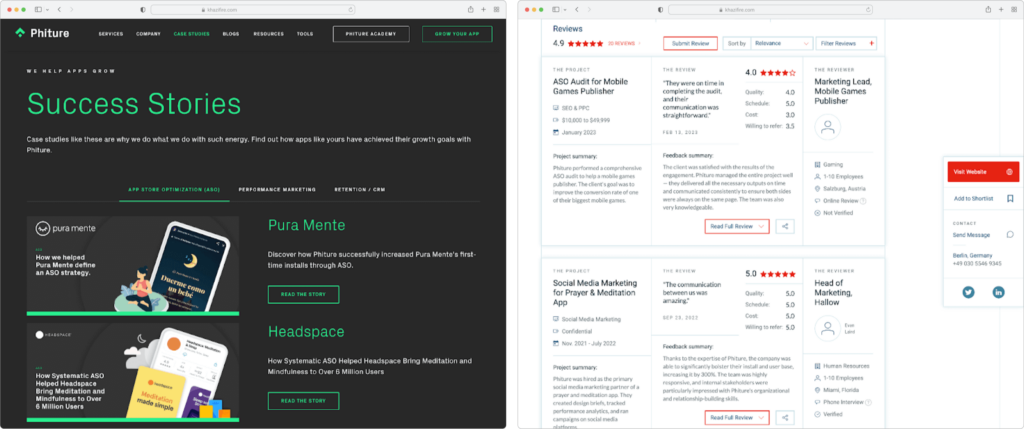
Excellent, you’ve completed the second step of finding a new app marketing agency. Now it’s time to contact them directly and learn more about the knowledge and services they bring.
Checking Agency Expertise and Services Offered
Every agency’s qualifications and offerings must be assessed to ensure they can deliver the desired results. To conduct this assessment, schedule intro calls with them to discuss your project requirements and inquire about their approach, strategies, and tools. Ask if you can also talk to those potentially working on your project (marketing managers, data analysts, designers, etc.) to avoid meaningless sales pitches.
Mobile app marketing specialization
Many think the app business is like any other digital channel, but it’s not. How distribution, user acquisition, business models, and analytics work for apps differs from any other marketing channel. It needs a deep understanding of mobile products, user behavior, and technological prerequisites.
Only a few agencies deliver good results on all digital platforms; therefore, you should rely on specialists. To separate the wheat from the chaff, ask them how they would tackle app-specific challenges like:
- What is your approach to app ad creatives (formats, a/b testing, user-generated, etc.)?
- Which mobile tech stack (MMP, product analytics provider, ASO tool, etc.) do you recommend working with and why?
- How will you handle the privacy limitations regarding AppTrackingTransparency (ATT) on iOS?
Even if you don’t know the perfect answer to these questions, their responses will speak volumes.
The app marketing services they provide
Some services are mandatory for most apps, and others might be important only for specific verticals. Let’s take a closer look at each one of them:
- App Store Optimization (ASO): Essential in terms of copy, screenshots, videos, ratings, and other actions you can take to increase the conversion rate, particularly for apps without a recognizable brand. And even though less critical than in years past, keyword optimization is still worthwhile if the use case of your app has a high generic search volume.
- Paid User Acquisition: Since organic visibility decreases gradually, most apps find themselves in a pay-to-win game with Apple, Google, Meta, and all the other ad networks. If you cannot spend economically due to low ARPU or high bidding competitors, you must have a very well-executed and often unique product to succeed in the long run. From an agency perspective, the most critical skills are feeding the campaign algorithms with the correct data and iterating efficiently on ad creatives until you find the winning variant that outperforms everything.
- App Analytics: To train the algorithms, identify which creatives work, and make data-driven decisions about your app’s features and UX, you need to have a working tech stack in place, often consisting of at least a product analytics tool and a Mobile Measurement Partner (MMP), if you’re doing paid UA through various channels. Subscription apps should also consider using a tool like Adapty because it delivers additional insights and functionality for subscription-based products.
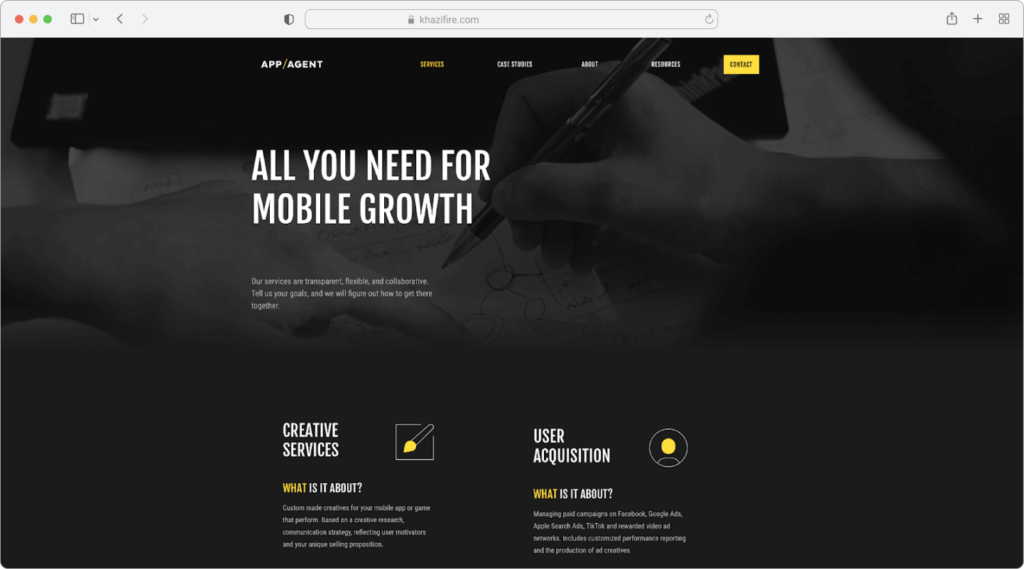
Of course, many other ways to promote an app, like social media management, brand advertising, influencer marketing, PR, etc., can contribute to a successful mobile marketing strategy. Still, I wouldn’t expect these skills from an app marketing agency.
Gauging Agency Creativity and Communication Skills
Creative design plays a pivotal role in the success of app marketing, as it captures the attention of potential users in a highly competitive market and effectively conveys the app’s value proposition. Visually appealing and engaging creatives differentiate the app from its competitors, create brand recognition, and convert the target audience into valuable users.
Extraordinary marketing campaigns and unique ideas
An innovative approach to creative design sets an agency apart by demonstrating its ability to think outside the box, embrace new trends, and solve complex challenges. This adaptability positions the agency as a forward-thinking leader, developing new, cutting-edge solutions in an increasingly saturated market.
ASO marketers, UA managers, designers, copywriters, and data analysts must work in unison to create unique and effective marketing campaigns. ASO marketers know how to craft app store listings that convert and can educate their team about keywords users already search for, while UA managers comprehend which creative formats are best for their campaigns. Designers create engaging visuals, copywriters craft compelling messaging, and data analysts provide valuable insights on where to improve.
How do they adapt to changes and follow trends?
Because the world of mobile is constantly changing, you need an agency that can adapt to new networks (TikTok), platform changes (iOS 14.5+), and creative trends (UGCs, horizontal videos). They will be the right partner long-term if they have the motivation, ability, or resources.
A good indicator for agencies eager to constantly learn and test new things is having a diverse workforce of balanced genders, a broad age spectrum, and various ethnic/social backgrounds. Leveraging all those different interests, opinions, and skill sets is a huge competitive advantage.
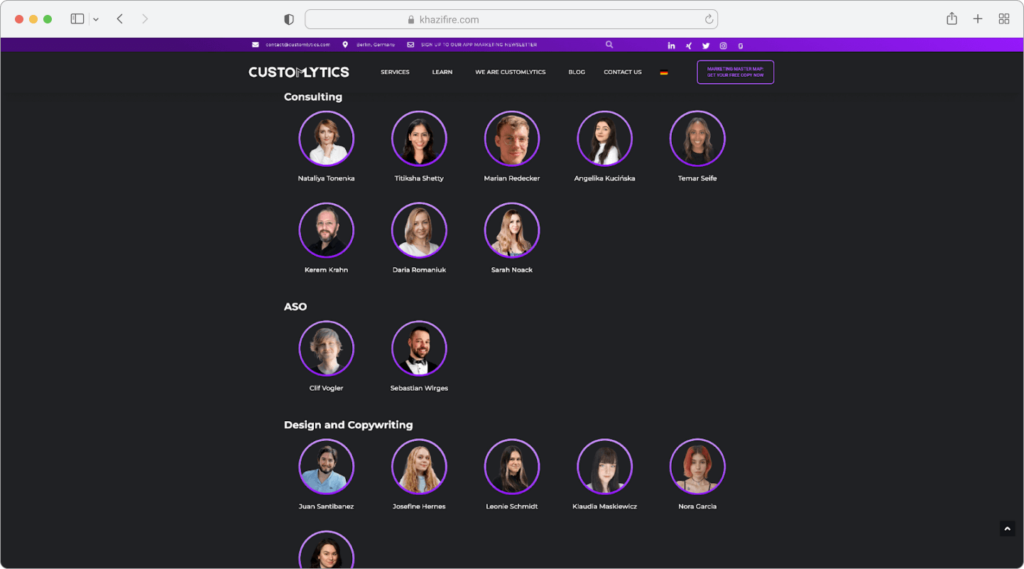
How are they responsive and professional?
Another promising sign is if a candidate responds promptly to your emails and phone calls. At best, within 24 hours, even if the final answer takes more research or consultation from their end.
Furthermore, this is an opportunity for you to check out the company’s culture–are they organized and attentive, or do they seem disconnected? Are they paying attention to detail (like typos or slopiness in creative designs)? Can you tell they care about your app, or does everything feel automated and generic? Many mobile marketing agencies must fill their order books and only care about some projects they work on as long as the client pays well. This doesn’t mean all those will do a lousy job, but surely it won’t mean they’ll go above and beyond for you.
You can also review the agency’s policies, mission statement, code of conduct, and corporate social responsibility initiatives to learn more about their cultural unity, shared values, and ethical behavior.
Comparing Prices, Packages, and Choosing the One
Last but not least, we need to talk about money. A thorough comparison of pricing models is essential for the ideal app marketing agency. Let’s examine the most common ones:
- Project-based: The main benefit of this model is that it allows the client to accurately calculate the cost of a project, considering both the number of hours required and the hourly rate. Estimating the workload for a project is often tricky because challenges might emerge as the work progresses. Most agencies quote higher than necessary for a margin of error, which might cause clients to overpay. And if the agency underestimates its costs, it may provide a poor service once those costs exceed the forecast.
- Hourly rate: In this case, the agency is incentivized to bill for every minute they spend on your project, regardless of whether their contribution is crucial. But it’s pretty straightforward for smaller projects or consultant work, mainly if hourly rates vary on the service and value provided (e.g., project management vs. creative design).
- Value-based: Very few agencies get this right, though this can be the fairest pricing approach since there is a precise alignment of incentives if both parties benefit the most from maximizing revenue, active users, or whatever KPI you agreed on. The complicated part is determining what to use as a base value and the agency fee. How do we know if increasing revenue is attributed to the agency’s work and not caused by external factors? Do we need to adjust the fee once certain milestones are hit?
- Budget-based: Still a prevalent pricing model among marketing agencies, it feels outdated today. Scaling with the ad spending made sense 5-10 years ago when more budget meant more expenditure for the agency due to manual campaign optimization, developing marketing personas, and creating a large set of campaigns and ad groups. With the rise of machine learning in almost every digital network’s algorithm, a small team can easily manage $1k or $100k/month without changing their daily workload significantly.
Beyond the pricing model, personalization and flexibility are essential in determining the right fit. For example, some agencies offer special deals for startups and charitable projects. If a client agrees to contribute toward case studies or is willing to try new app marketing channels where the agency has little experience, they may discount you.
Evaluating Return On Investment (ROI)
Return on Investment, or ROI, is a crucial metric for businesses when evaluating the efficacy of their marketing efforts, and that includes all agencies involved in the process. It refers to the financial return from marketing investments divided by the marketing cost. In essence, ROI helps businesses measure the profitability of their marketing campaigns and make informed decisions about future investments.
When partnering with an app marketing agency, it’s essential to assess the effectiveness of their work to ensure that the resources spent on their services yield the desired outcomes. A high ROI indicates that the agency’s strategies drive higher revenues and overall business growth. On the other hand, a low ROI may signal the need to reevaluate the current marketing approach or even reconsider the agency itself.
But it would be best to consider the agency’s values that are not reflected in the ROI, like knowledge transfer, market insights, experience from other projects, creative sparring, etc.
Listing the pros and cons of each agency
It’s decision time! And that can be challenging if you have to choose from an already narrowed-down list. Creating a comprehensive overview of the pros and cons can be an effective method for making the final decision. It would be best to consider quantitative and qualitative factors to do this most effectively. Quantitative factors include pricing, predicted ROI, size of the workforce, etc. In contrast, qualitative factors encompass the agency’s responsiveness to inquiries, communication style, company values, work ethics, ability to adapt to new trends, design creativity, etc. By organizing and weighing these factors in a structured manner, you should be able to make an informed decision.
Ultimately, trusting your intuition and gut feeling can play a significant role in making the final decision. Listen to your instincts and consider your connection with their team. This often indicates the level of trust, communication, and collaboration you can expect throughout the working relationship.
Trial projects or consultations to confirm your choice
However, before fully committing to an app marketing agency, testing the waters with a small project or consultation like an audit or workshop on a specific topic is advisable. This trial engagement allows you to evaluate the agency’s performance, work style, and ability to meet deadlines without investing significant resources into a long-term contract. Doing so lets you better understand the agency’s strengths and weaknesses and determine if they fit you and your app.
Conclusion
Choosing the right app marketing agency is critical in ensuring your app’s success (duh!). To make an educated decision, identify your marketing needs, goals, and target audience. Establish clear KPIs that align with your business objectives and avoid relying solely on vanity metrics.
Conduct thorough research to identify potential agencies, considering factors such as location and language capabilities. Reach out to references, read reviews and case studies, and verify their authenticity. Engage with shortlisted agencies to evaluate their expertise, responsiveness, professionalism, and adaptability to industry changes and trends.
When comparing agencies, consider different pricing models and weigh the pros and cons of each, taking into account factors like personalization and flexibility. Trust your intuition and consider engaging in a trial project or consultation to evaluate the agency’s performance without substantial resource investment.
Adapty’s Partnership Program
Do you want to grow your subscription app and didn’t find the right app marketing agency yet? Contact us at https://adapty.io/contact/, and we’ll pair you with an ideal agency from our partnership program!
Adapty’s partnership program is designed to help app publishers grow their businesses by connecting them with partners certified by our team. The program includes a variety of well-funded agencies from all over the world with sufficient budgets to scale apps of any size. They are result-driven with a proven track record of successful cases and specialize in ASO, user acquisition, paywall optimization, growth and monetization strategy, and product analytics.
